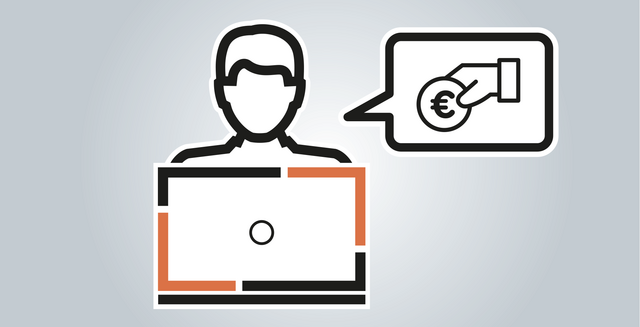
Kapitel
The United Arab Emirates (UAE) is a federation of seven states that has grown from a quiet backwater to one of the Middle East's most important economic centres.
The UAE's society is religiously and ethnically diverse, with Islam as the majority religion and Arabic as the official language, though English is widely spoken, especially in business. The government is a federal semi-constitutional monarchy, with a president and prime minister, and its economy is open market-based.
Before oil was discovered in the 1950s the UAE's economy was dependent on fishing and a declining pearl industry. But since oil exports began in 1962, the country's society and economy have been transformed.
The UAE has diversified and has become a regional trading and tourism hub.
Abu Dhabi is the capital and largest emirate, while Dubai is the largest city.
Kennzahlen
- Fläche
- 83,600 km2
- Bevölkerung
- 10,032,213 (2024 est.)
- Regierungsform
- federation of monarchies
- Sprachen
- Arabic (official), English, Hindi, Malayam, Urdu, Pashto, Tagalog, Persian
- BIP
- $745.994 billion (2024 est.)
- Wachstumsrate
- 3.8% (2024 est.)
- HDI
- 15
- Hauptstadt
- Abu Dhabi
Makroökonomische Indikatoren
The UAE’s economic growth remains strong, supported by resilient domestic demand and ongoing structural reforms. The oil sector continues to anchor fiscal and external balances, while diversification efforts are accelerating to enhance resilience and reduce vulnerabilities. Non-oil growth is underpinned by strategic investments in infrastructure, technology, and human capital. Reforms in governance, trade, and energy are reinforcing sustainability and facilitating the shift toward a more diversified growth model. Cross-border energy ties are expected to intensify following announcements of a deepening energy investments plans with the USA. Risks stem from supply chain challenges, including those from affected Red Sea routes, and could weigh on tourism, transport, and logistics. While the outlook remains subject to external uncertainties, substantial sovereign buffers, ongoing structural reforms, and strong investment momentum provide a solid foundation for sustained growth.
Source: WORLD BANK
IMF Statistics:
| Subject descriptor | 2023 | 2024 | 2025 | 2026 | 2027 |
|---|---|---|---|---|---|
|
All Items, Consumer price index (CPI), Period average, percent change Percent (Units) |
1.627 |
1.661 |
1.616 |
2.0 |
2.0 |
|
Current account balance (credit less debit), Percent of GDP Percent (Units) |
13.117 |
14.482 |
13.183 |
12.303 |
11.524 |
|
Current account balance (credit less debit), US dollar US dollar (Billions) |
68.552 |
79.99 |
75.025 |
73.963 |
73.683 |
|
Exports of goods and services, Volume, Free on board (FOB), Percent change Percent (Units) |
16.401 |
8.403 |
8.736 |
7.183 |
7.421 |
|
Gross domestic product (GDP), Constant prices, Percent change Percent (Units) |
4.301 |
3.992 |
4.765 |
5.008 |
4.736 |
|
Gross domestic product (GDP), Current prices, Per capita, US dollar US dollar (Units) |
48941.279 |
50216.313 |
51347.902 |
53841.581 |
56860.788 |
|
Gross domestic product (GDP), Current prices, US dollar US dollar (Billions) |
522.622 |
552.325 |
569.097 |
601.163 |
639.415 |
|
Imports of goods and services, Volume, Cost insurance freight (CIF), Percent change Percent (Units) |
18.051 |
5.465 |
5.231 |
6.52 |
8.226 |
Luxemburg und das Land
Existing conventions and agreements
Non double taxation agreement
In order to promote international economic and financial relations in the interest of the Grand Duchy of Luxembourg, the Luxembourg government negotiates bilateral agreements for the avoidance of double taxation and prevent fiscal evasion with respect to Taxes on Income and on fortune with third countries.
- Convention from 20.11.2005 (Memorial 2009, A no. 136, p.1900)
- Effective as of 01.01.2010 (Memorial 2009, A, no. 136, p. 1900)
- Protocol Amendment from 26.10.2014 (Memorial 2015, A, no.247, p.5081)
- Law from 24.12.2015
- Effective as of 01.01.2016
Air Services agreement
None
Source : Administration des contributions directes
Weitere Informationen
Contact points in United Arab Emirates
Embassy of the Grand Duchy of Luxembourg in United Arab Emirates
Chargée d'Affaires a.i.: Mrs. Marie-Anne MARX
Nation Tower Residences
Corniche Road
Appt. 6201, 62nd Floor
Abu Dhabi
United Arab Emirates
Tel.: (+971) 2 491 24 46
Emergency number: (+971) 50 613 0248
Fax: (+971) 2 491 22 89
E-Mail: abudhabi.amb@mae.etat.lu
Website: abudhabi.mae.lu
Luxembourg Trade and Investment Office
Mrs. Marie-Anne MARX
Nation Tower Residences - Appt.6201, 62nd Floor Corniche Road
P.O. Box No 44909
Abu Dhabi - UAE
Tel: (+971) 2 491 2446
Email: ltio.abudhabi@mae.etat.lu
Website: abudhabi.mae.lu
Source: Ministry of Foreign Affairs of Luxembourg




